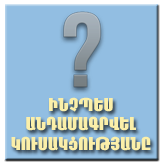
By Raffi K. Hovannisian
In a faraway corner of the world, in a land Armenians call Artsakh and which you may know as Karabakh (“black garden”), a church was bombed last week — and then bombed again. It was Azeri forces that attacked the Holy Savior Cathedral in the city of Shushi, amid a spiraling armed conflict between the two sides.
And not just between those two sides. Scattered among these ancient mountains are the debris of Syrian mercenaries, Israeli drones, Turkish helicopters and Russian bombs, all exploding out into an unpredictable regional war.
Yet for us Armenians, an attack like the one on the Holy Savior Cathedral isn’t just a matter of urgent current affairs. No, the swirling dust kicked up by violence against a Christian house of worship can take back even the most modern-minded Armenian more than a century — to the year 1915.
That was the year that the Ottoman Turkish government began the systematic deportation, attempted conversion and ultimate killing of a million and a half Christian Armenians.
“Christians in Peril in Turkey,” screamed headlines from The New York Times that year. It turned out to be quite the global event: the spectacular killing of the world’s first Christian people, the first genocide of modern history unfolding in the shadows of Ararat, the biblical mountains where Noah’s Ark had landed.
And then another kind of headline: “Turkish Official Denies Atrocities.”
As Armenians were sent to slaughter like lambs, the Turkish government was gaslighting America and the world, unveiling a policy of systematically denying the Armenian Genocide that continues to this day. The policy also involved systematically destroying all evidence that Armenians had ever lived in the region — including hundreds of churches.
Miraculously, a small sliver of Armenia did survive the genocide, first as an independent republic and then — history never being too generous — as Soviet Armenia. A few years later, Armenia was cut up even further. It was Joseph Stalin’s idea to award the Armenian territory of Nagorno Karabakh to Soviet Azerbaijan. It remained semi-autonomous within its bound, and Armenians remained a majority there, although pogroms and massacres were rampant.
As the Soviet Union was falling, the people of Artsakh naturally voted — just like Armenia and Azerbaijan — to regain sovereignty. Azerbaijan, having enjoyed possession of the place for the better part of a century, was not inclined to give it up. That is how the war started.
I know that war well. When Armenia declared independence from the Soviet Union in 1991, I served as the new republic’s first foreign minister and had the privilege to launch diplomatic relations with the nations of the world and negotiate Armenia’s accession to the United Nations and other international organizations. When war in Artsakh erupted, I had the responsibility of setting the foundations of peace talks.
In 1994, with Armenians in control of Artsakh, a cease-fire was brokered. But the war wasn’t really over. As a gesture of solidarity — and a promise for the future — Azerbaijan’s senior ally Turkey had closed its border with Armenia. In the decades that followed, Turkey continued to deny the Armenian Genocide.
With the rise of President Recep Tayyip Erdogan and his Justice and Development Party, Turkey descended into dictatorship and xenophobia. Azerbaijan did the same. Its president, Ilham Aliyev, recently tweeted: “Armenia is not even a colony, it is not even worthy of being a servant.”
It was with Turkey’s funding, munitions and guidance that Azerbaijan attacked Artsakh on Sept. 27, 2020. Erdogan didn’t attempt to hide this. “We support the friendly and fraternal Azerbaijan in every way possible,” he said. And even then, as Stepanakert and Shushi and all towns of Artsakh were indiscriminately bombed, we didn’t want to accept what he meant.
Yes, a church being bombed is a special kind of event. A church being bombed is an instantaneous narration of a 100-year history, clearing away a century’s worth of obfuscation and denial to reveal a quite apparent truth: Christians are in peril again. And genocide has once again besieged the black garden.
Raffi Hovannisian served as Armenia’s first minister of foreign affairs and helped negotiate peace talks among Armenia, Azerbaijan and Artsakh.
https://nypost.com/2020/10/21/turkey-leads-new-atrocities-against-armenians/
